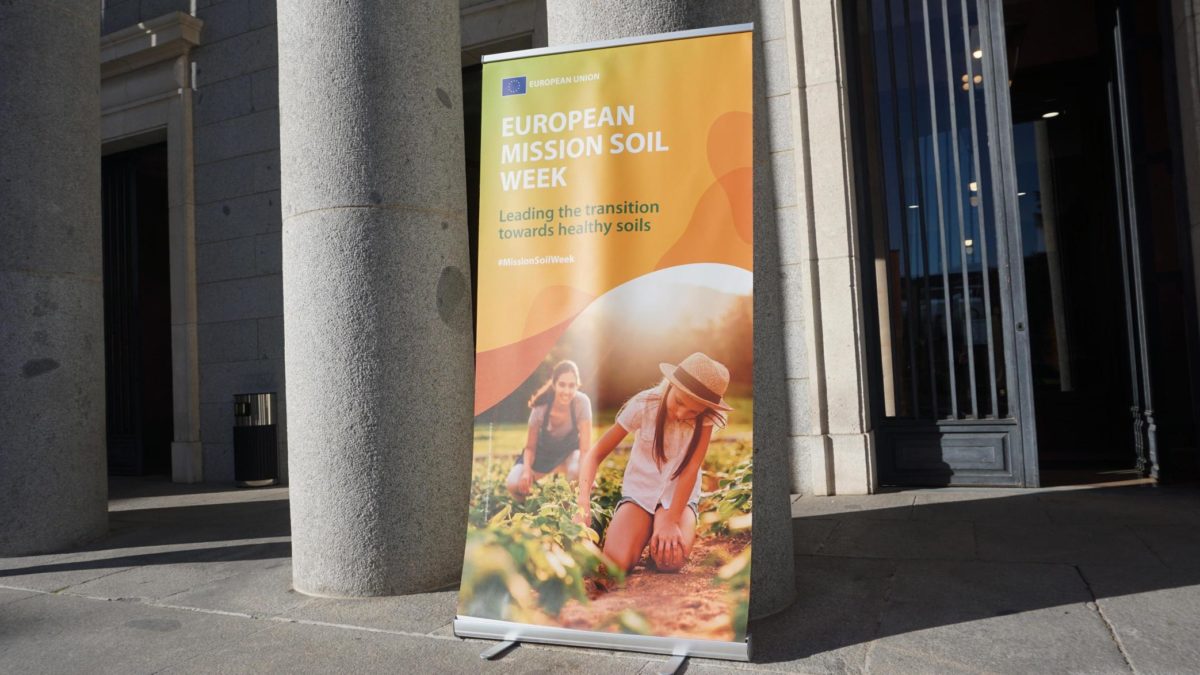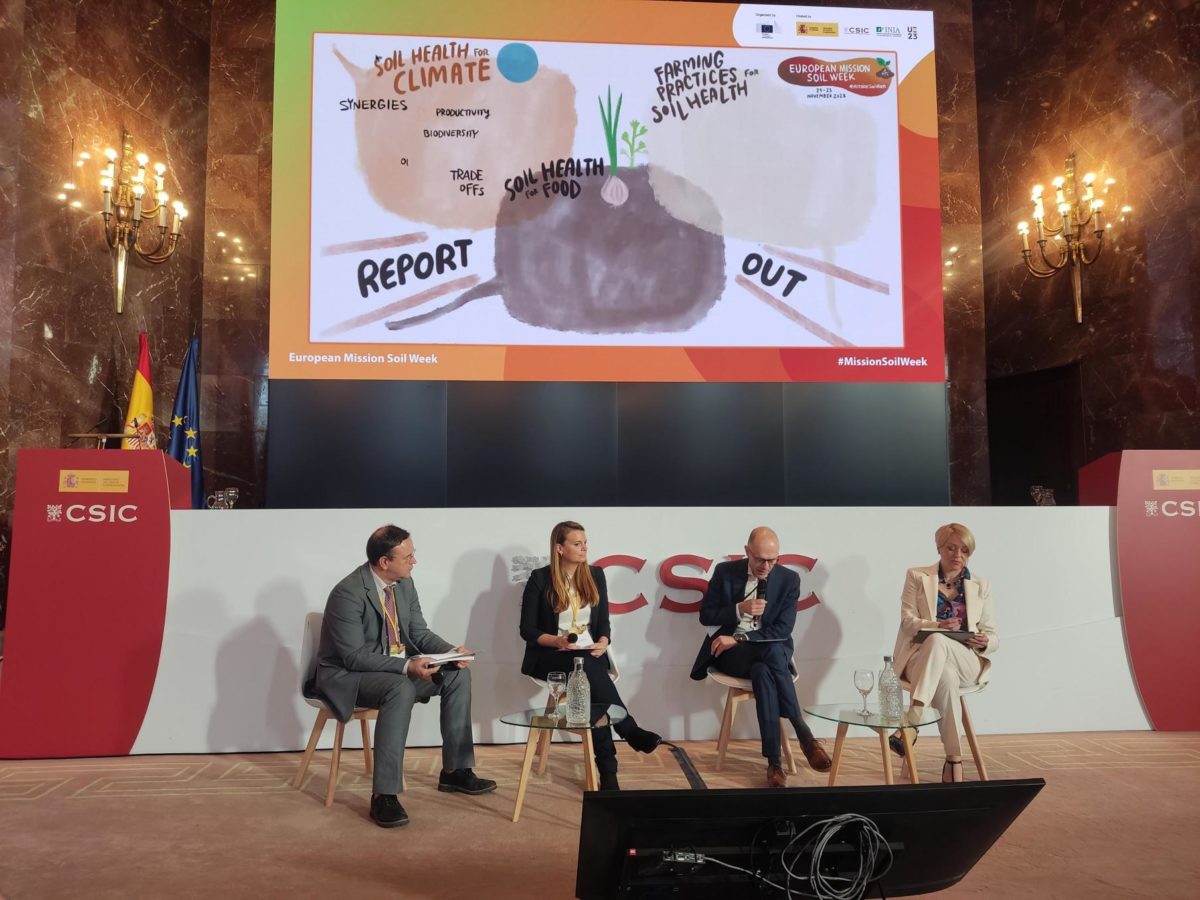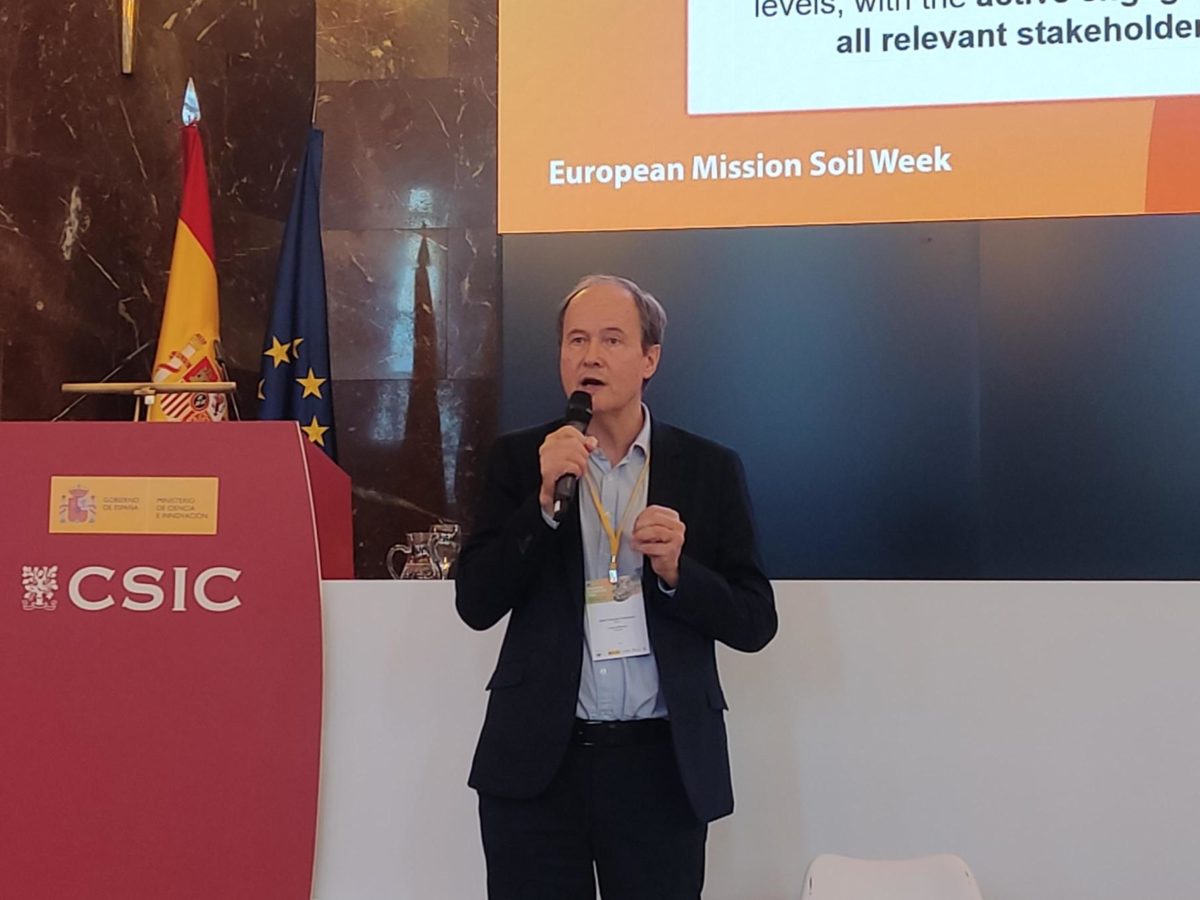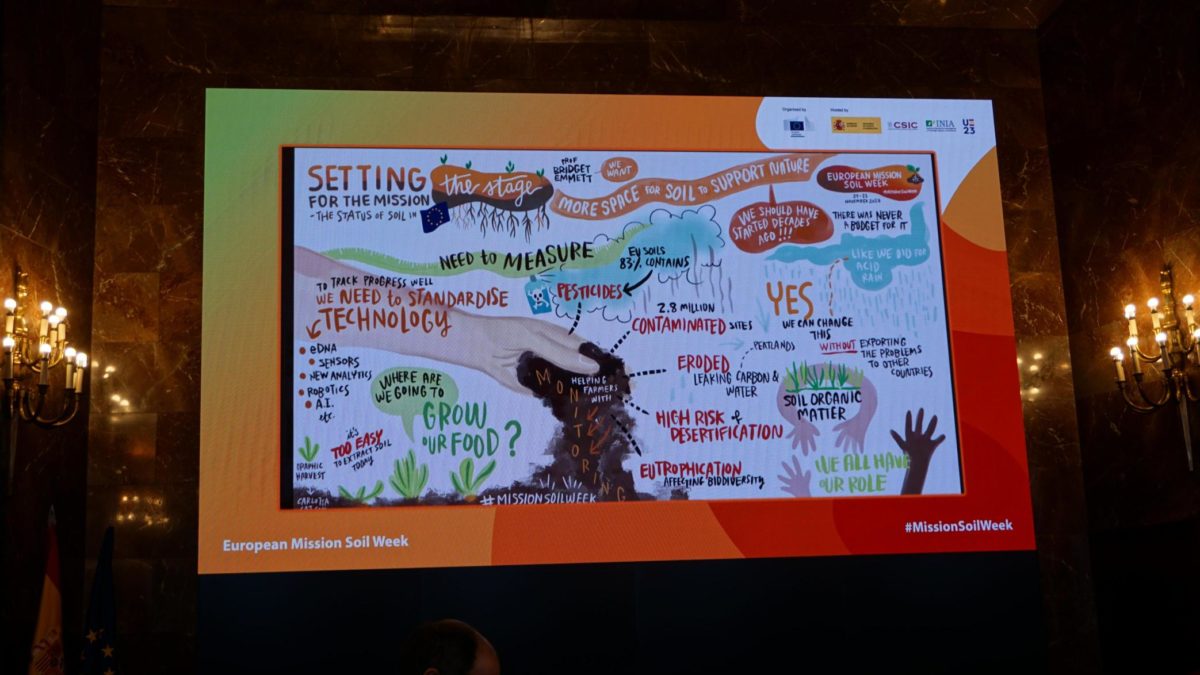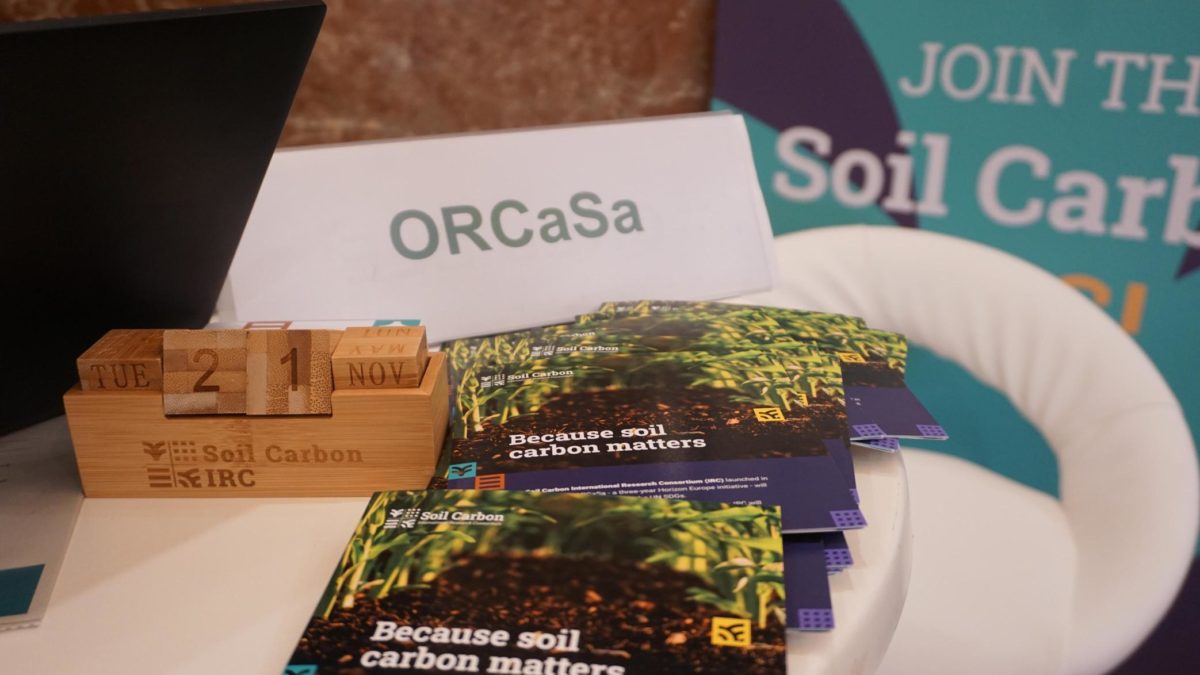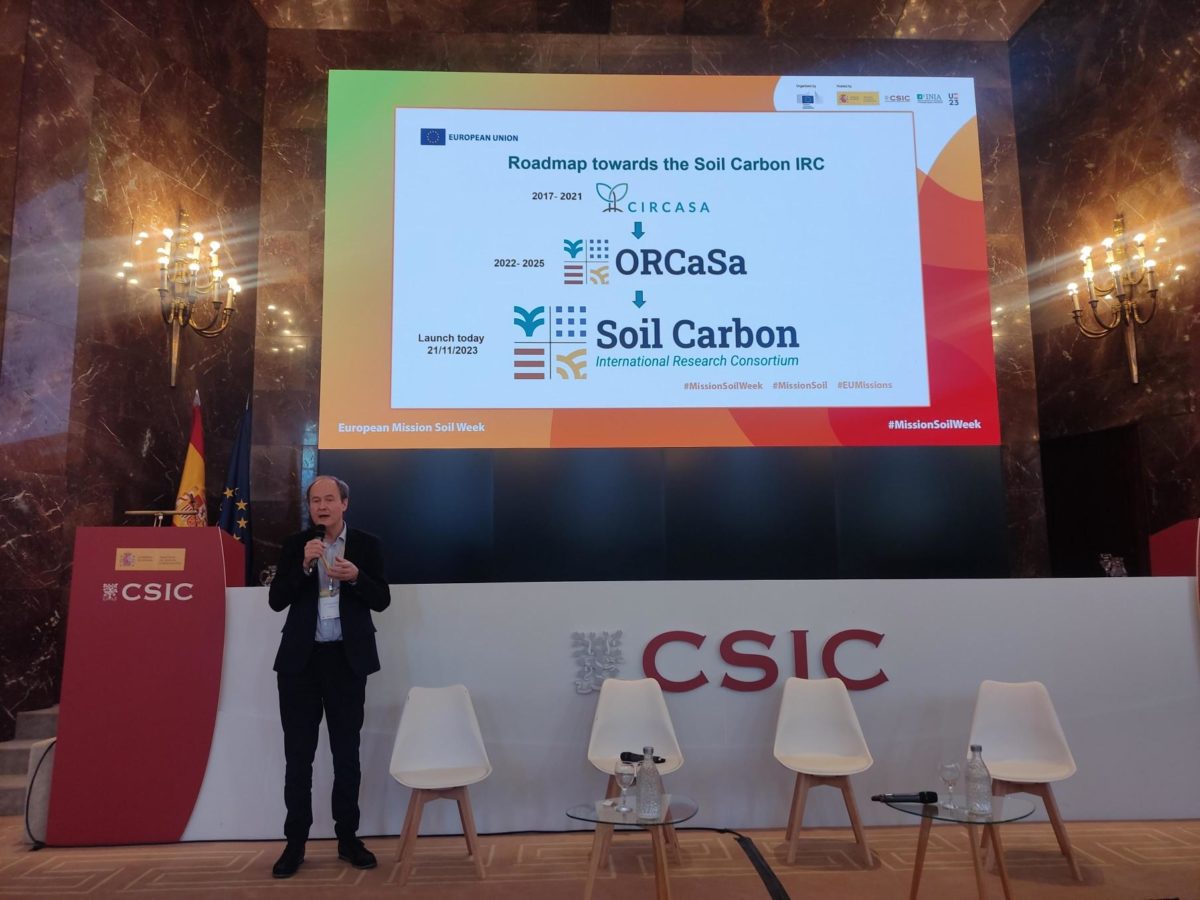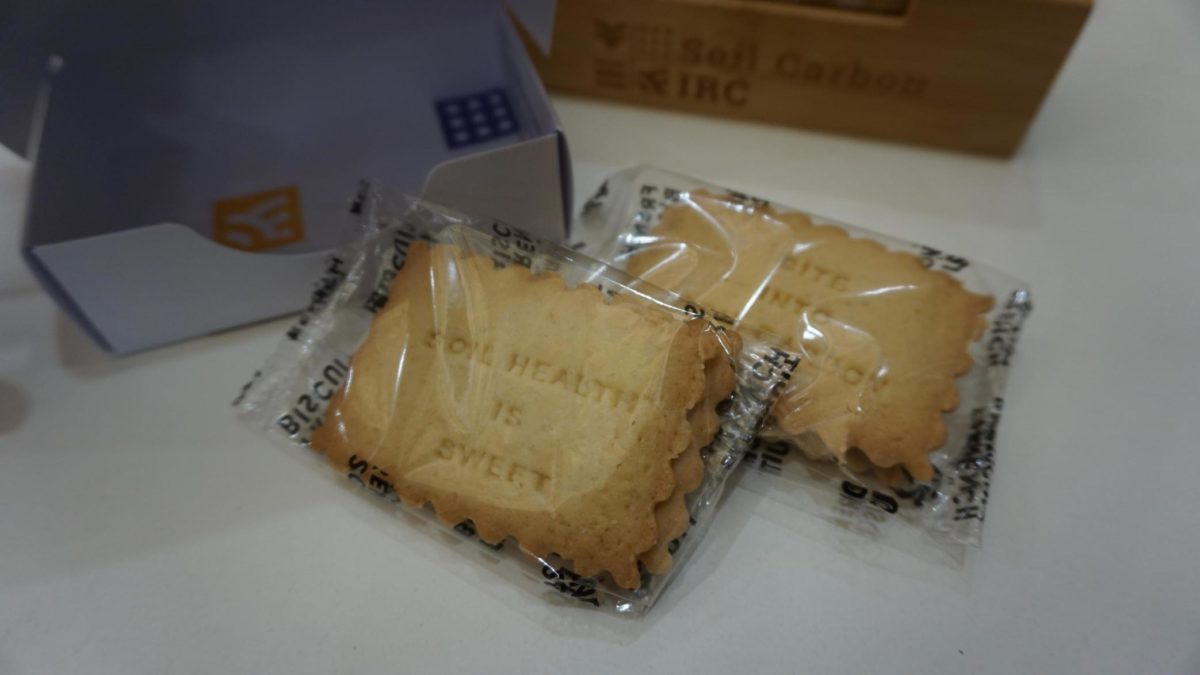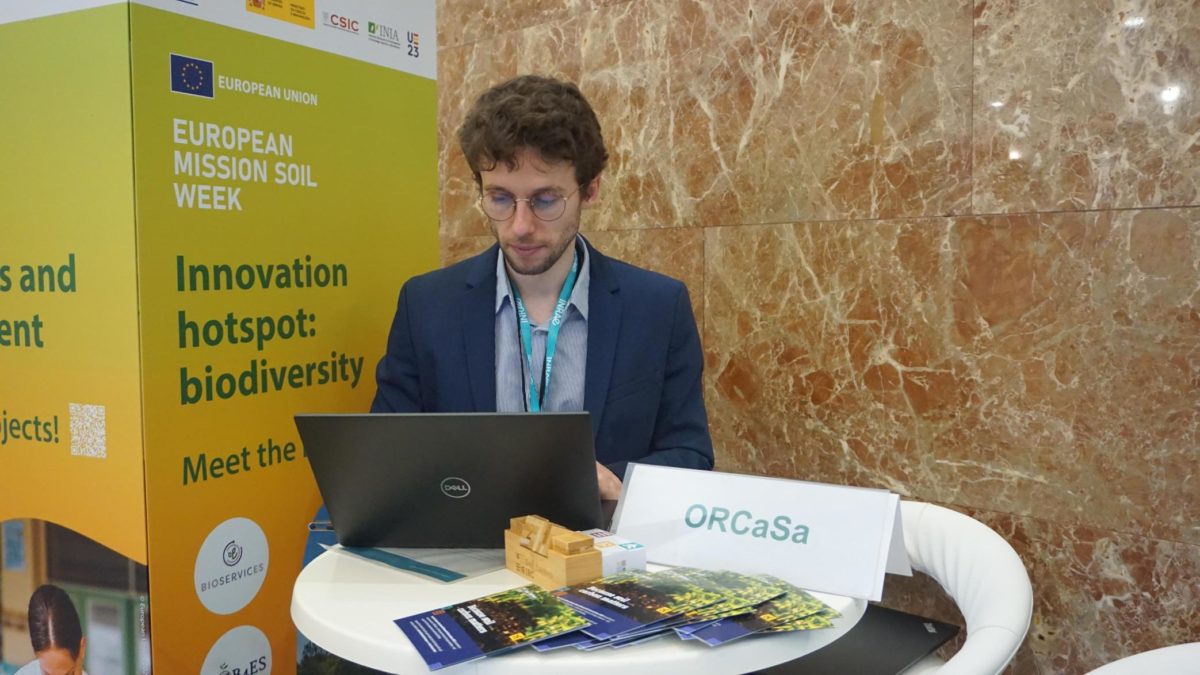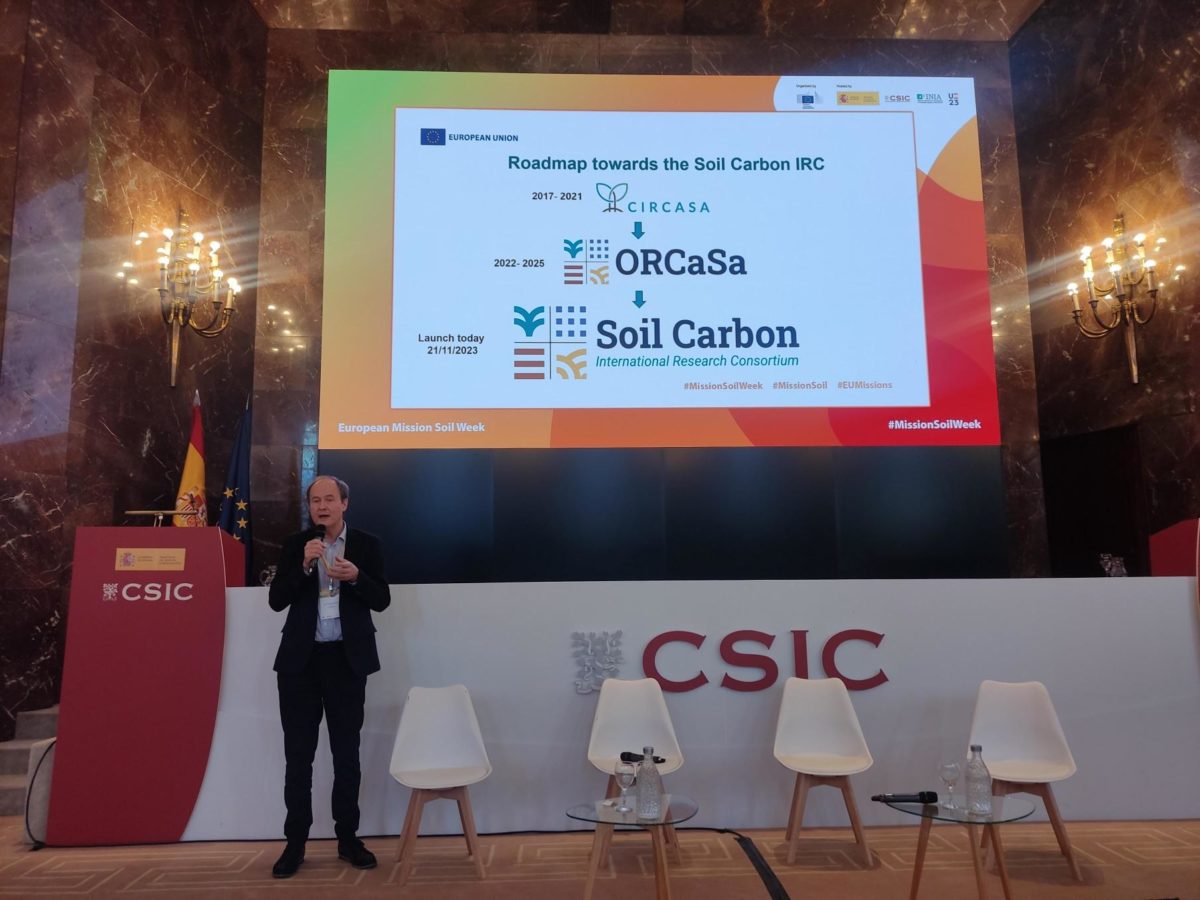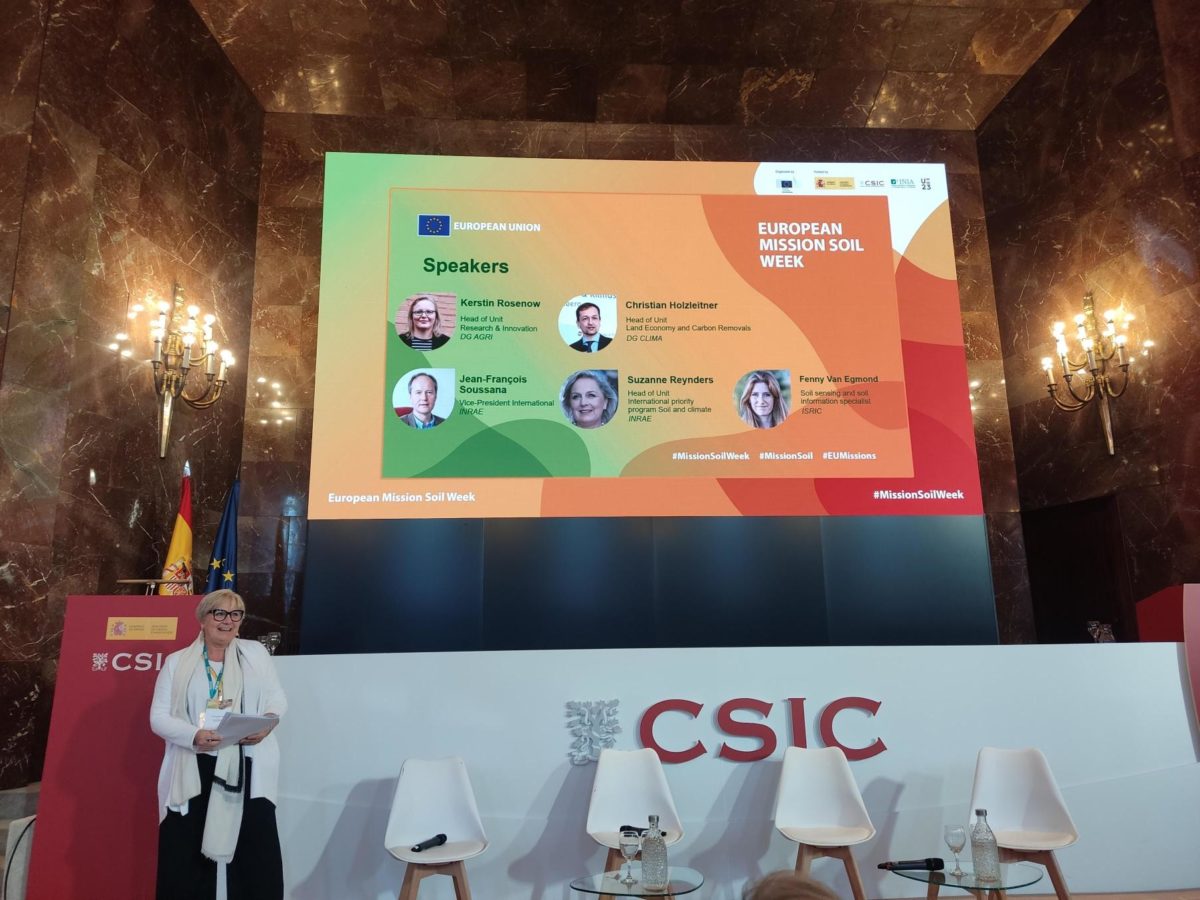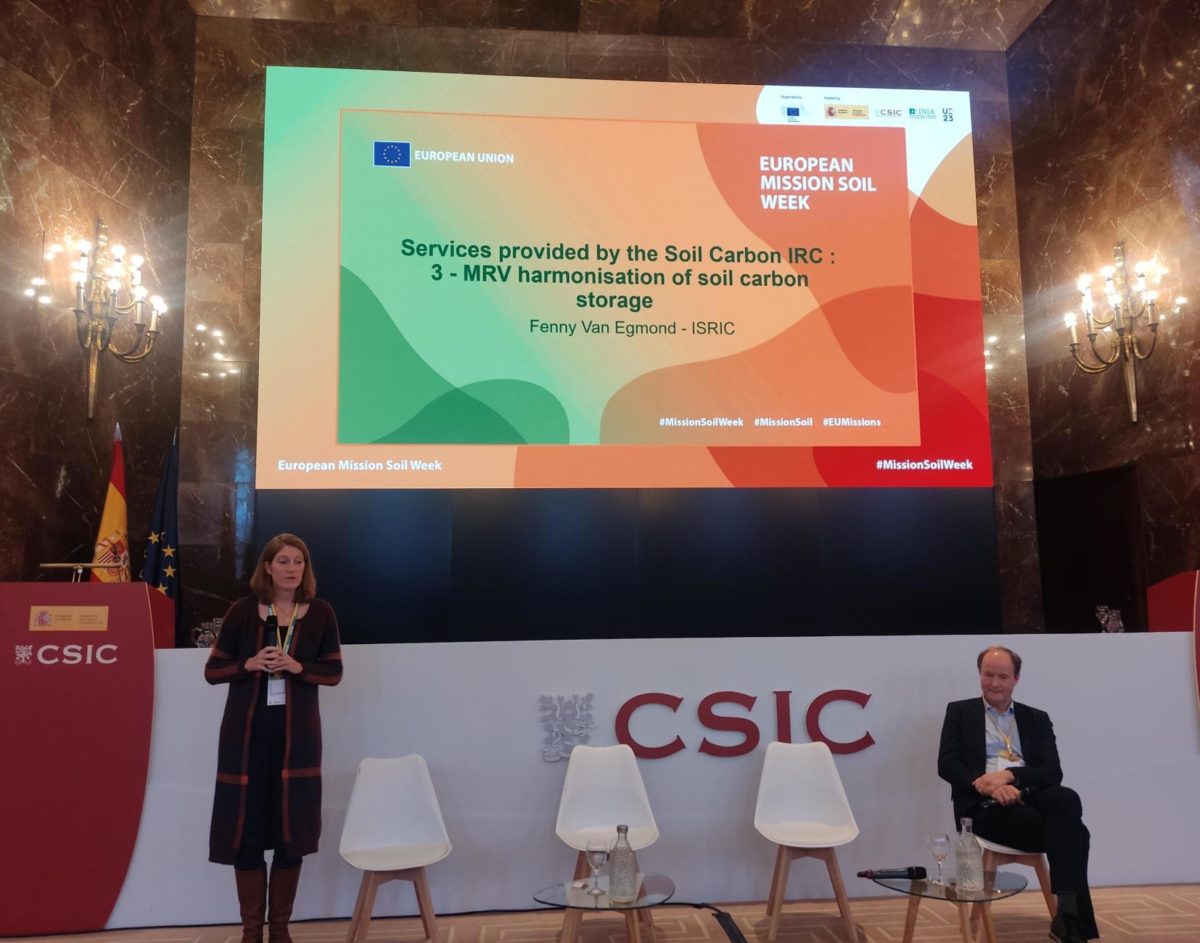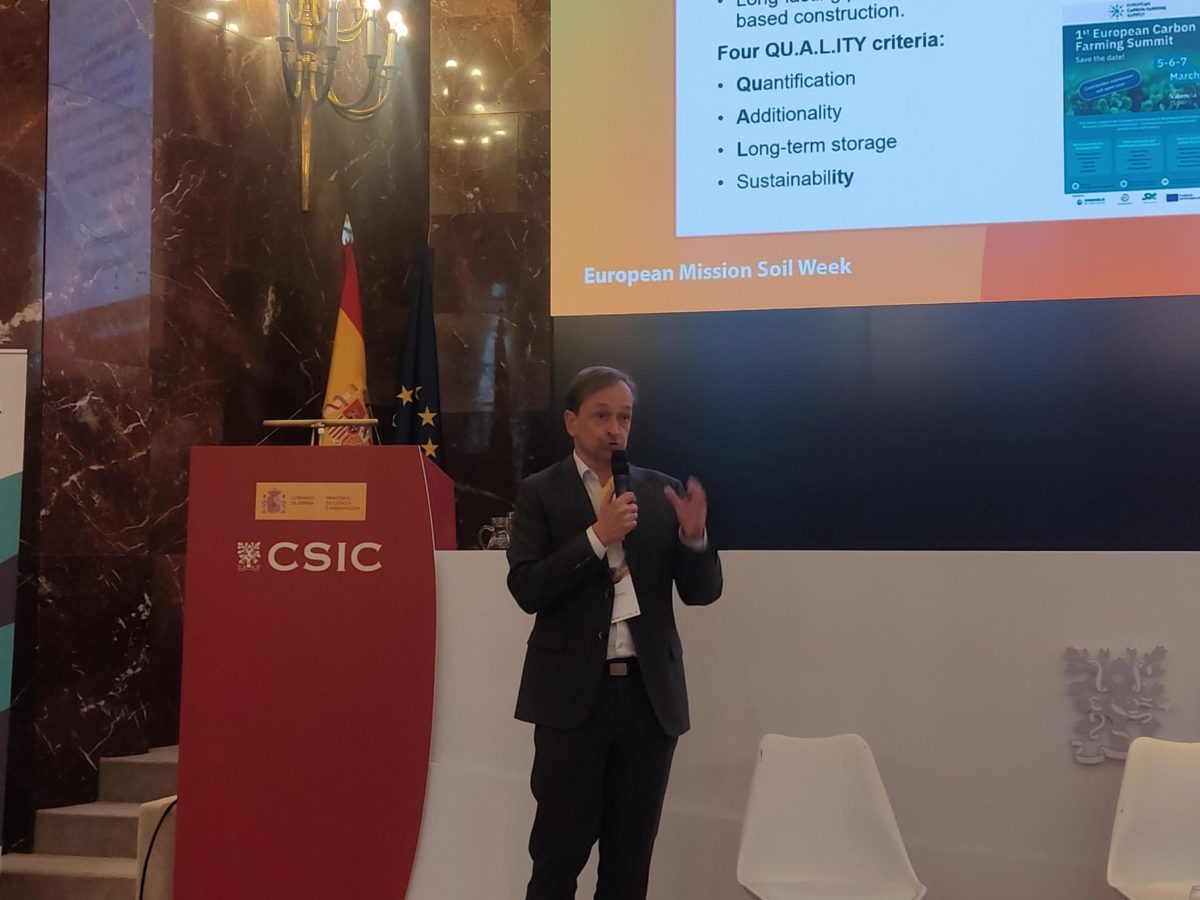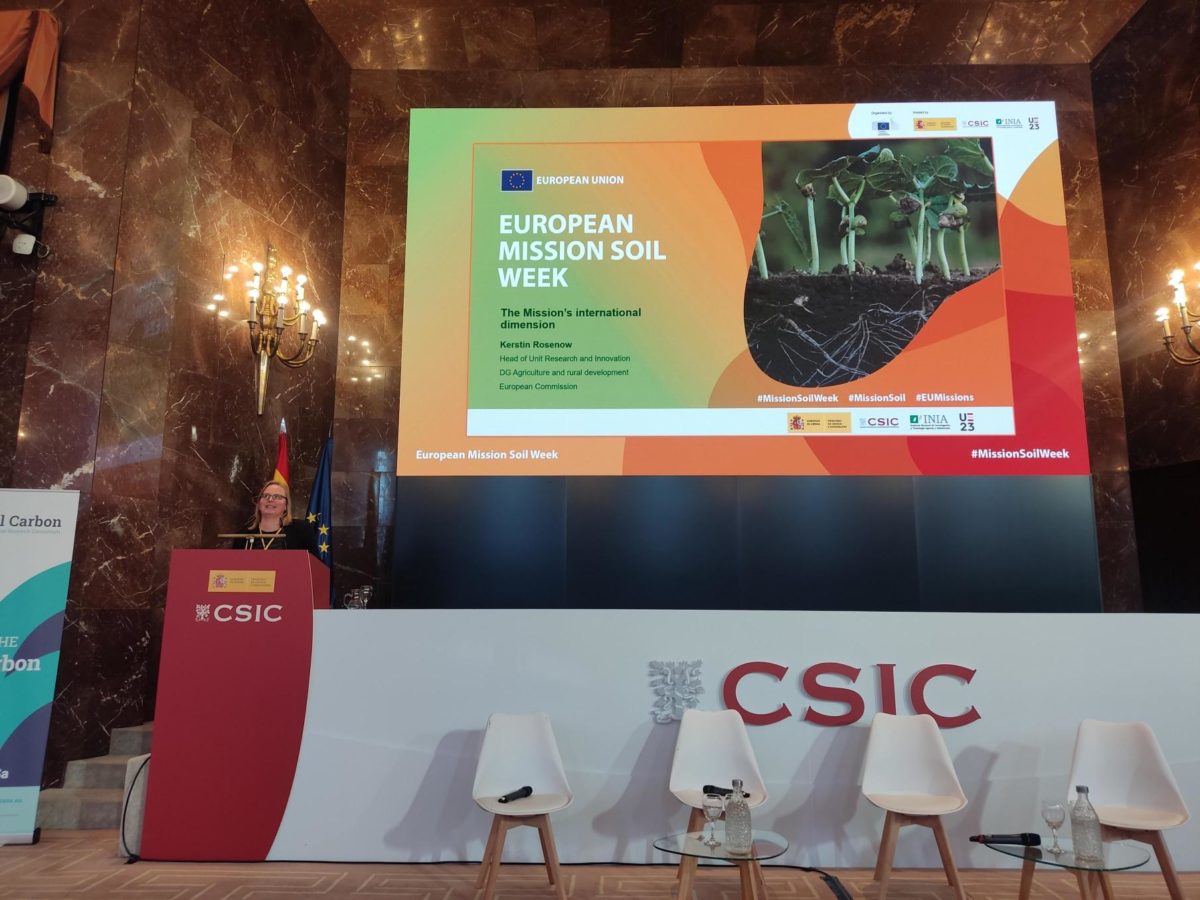The Soil Carbon IRC is official!
Just over a year after the kick-off of the ORCaSa project, and a few days before the COP28 in Dubai, the Soil Carbon International Research Consortium (IRC) was launched in Madrid during the first edition of the European Soil Mission Week.
‘This gives the Mission its full international dimension’, says Kerstin Rosenow, Head of the Mission Secretariat and Head of Unit of Research and Innovation at DG AGRI. ‘Soil health is a global issue with local specific challenges that are shared among countries and regions. It is important to reduce the European footprint on soils.’
‘This is a key milestone for the ORCaSa project and also the first step towards a long-lasting journey‘, indicates Suzanne Reynders, ORCaSa coordinator and Head of international priority program soil and climate at INRAE (French National Research Institute for Agriculture, Food and the Environment). ‘Wether with the CIRCASA project, or now with ORCaSa, we have been supporting the European Soil Mission since 2017, and we are now proud to support its global development.’
‘We have been supporting the European Soil Mission since 2017, and we are now proud to support its global development.’
Hand in hand with the 4p1000 Initiative and supporting the Paris Agreement and the SDGs, the Soil Carbon IRC covers all soils (agricultural land, forests, pastures, wetlands, urban areas, etc.) and is open to professionals working for universities, research organisations, national or international initiatives or programmes, living labs, R&D agencies, foundations, banks, private companies, start-ups, policymakers, agriculture experts, or NGOs working with food, climate, and environmental topics, etc.
‘This is a key timing for the Soil Carbon IRC because soil has becoming a hot topic extremely trendy and which attracts a lot of people and philanthropic organisations’, explained Jean-François Soussana, Vice-Chair for international affairs at INRAE. ‘In the current international context, the Soil Carbon IRC offers the opportunity to co-design a new framework together.’
‘In the current international context,, the Soil Carbon IRC offers the opportunity to co-design a new framework together.’
By joining the IRC, they will access and be active in the following key services:
- Research alignment and calls through a Knowledge Hub and Thematic Annual Programming (TAP) network — with first meetings scheduled for the beginning of 2024
- Harmonised Monitoring, Reporting and Verification (MRV) framework
- Impact4Soil online knowledge platform
Christian Holzleitner, Head of Unit for Land and Economy and Carbon Removals at DG CLIMA, stressed that ‘MRV is the first necessary step to get the transition happening. The agriculture sector has a key role to play in reducing carbon emissions and we have to take control of CO2 emissions and do our best to remove them.’
‘MRV is the first necessary step to get the transition happening.’
Need more convincing to join? Watch the Soil Carbon IRC video!
Gallery
